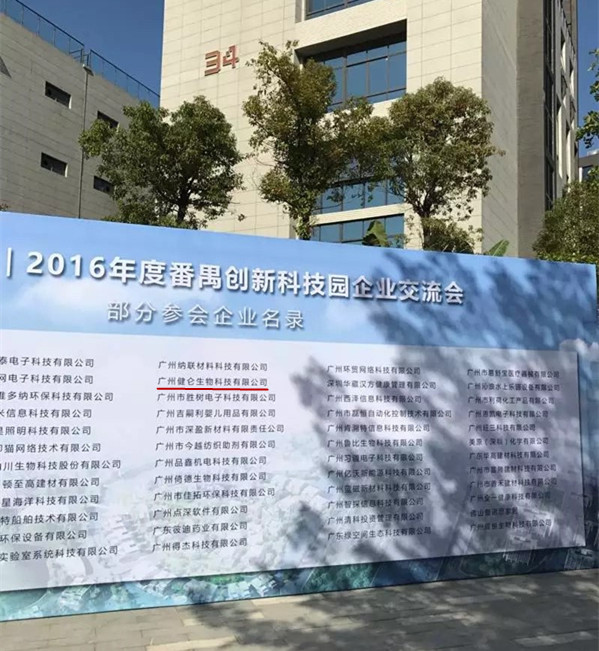- 产品描述
果氏巴贝西虫免疫荧光玻片
Babesia microti IFA Substrate slide
广州健仑生物科技有限公司
主要用途:用于检测人血清中的果氏巴贝西虫IgG/IgM抗体
产品规格:12 孔/张,10 张/盒
主要产品包括:包柔氏螺旋体菌、布鲁氏菌、贝纳特氏立克次体、土伦杆菌、钩端螺旋体、新型立克次体、恙虫病、立克次体、果氏巴贝西虫、马焦虫、牛焦虫、利什曼虫、新包虫、弓形虫、猫流感病毒、猫冠状病毒、猫疱疹病毒、犬瘟病毒、犬细小病毒等病原微生物的 IFA、MIF、ELISA试剂。
果氏巴贝西虫免疫荧光玻片
我司还提供其它进口或国产试剂盒:登革热、疟疾、西尼罗河、立克次体、无形体、蜱虫、恙虫、利什曼原虫、RK39、汉坦病毒、深林脑炎、流感、A链球菌、合胞病毒、腮病毒、乙脑、寨卡、黄热病、基孔肯雅热、克锥虫病、违禁品滥用、肺炎球菌、军团菌、化妆品检测、食品安全检测等试剂盒以及日本生研细菌分型诊断血清、德国SiFin诊断血清、丹麦SSI诊断血清等产品。
欢迎咨询
欢迎咨询2042552662

| JL-FL38 | parkeri立克次体IgG ELISA | R. parkeri IgG ELISA Kit |
| JL-FL39 | montanensis立克次体IgG ELISA | R. montanensis IgG ELISA Kit |
| JL-FL40 | EB病毒衣壳IgG免疫荧光玻片试剂盒 | EBV Viral Capsid IgG IFA Kit |
| JL-FL41 | EB病毒衣壳IgM免疫荧光玻片试剂盒 | EBV Viral Capsid IgM IFA Kit |
| JL-FL42 | EB病毒早期抗原IgG免疫荧光玻片试剂盒 | EBV Early Antigens IgG IFA Kit |
| JL-FL43 | 钩端螺旋体IgG免疫荧光试剂盒 | Leptospira IgG IFA Kit |
| JL-FL44 | 钩端螺旋体IgM免疫荧光试剂盒 | Leptospira IgM IFA Kit |
| JL-FL45 | Babesia microti IFA Substrate slide | |
| JL-FL46 | 果氏巴贝西虫IgG免疫荧光试剂盒 | Babesia microti IgG IFA Kit |
| JL-FL47 | 果氏巴贝西虫IgM免疫荧光试剂盒 | Babesia microti IgM IFA Kit |
| JL-FL48 | 埃立克体IgG微量免疫荧光试剂盒 | Ehrlichia canis Canine IFA IgG Kit |
| JL-FL49 | 包柔氏螺旋体菌IgG免疫荧光试剂盒 | Borrelia IgG IFA Kit |
| JL-FL50 | 布鲁氏菌IgG免疫荧光试剂盒 | Brucella IgG IFA Kit |
| JL-FL51 | 里氏新立克次体IgG免疫荧光试剂盒 | Neorickettsia risticii IgG IFA Kit |
| JL-FL52 | 弓形虫IgG免疫荧光试剂盒(检测猫) | Toxoplasma IFA Feline IgG Kit |
| JL-FL53 | 弓形虫IgG免疫荧光试剂盒(检测狗) | Toxoplasma IFA Canine IgG Kit |
二维码扫一扫
【公司名称】 广州健仑生物科技有限公司
【】 杨永汉
【】
【腾讯 】 2042552662
【公司地址】 广州清华科技园创新基地番禺石楼镇创启路63号二期2幢101-3室
【企业文化】


黄斑变性可能是这三种疾病中zui容易用细胞替代疗法缓解的一种。使用传统培养方法和我们的新方法,人类胚胎干细胞和诱导多能干细胞都比较容易产生支撑组织的细胞,即视网膜色素上皮细胞,并可从培养基中直接提取出来。美国已开始用这种细胞进行早期小规模临床实验,其他国家也有类似的实验计划。在这些实验中,研究人员会用细针,将干细胞分化成的色素上皮细胞注射到色素上皮和光感受器细胞层之间,至少替代部分受损组织。
视网膜色素变性的细胞疗法尚需进一步改良才能应用于人类。与传统培养方法不同,我们的新技术可产生一层密集的视杆细胞,适于进行移植,但移植了这种细胞层之后,还需用其他关键手段来提高视力。光感受器细胞不同于简单的上皮支撑组织,需要整合到眼睛的神经回路中;尤其重要的是,光感受器需与另一种感觉细胞——双极细胞——重新形成细胞连接,而我们尚不知道如何有效形成这种连接。若能成功移植光感受器细胞,将有望使视网膜色素变性患者至少恢复部分视力,甚至使晚期患者受益。
青光眼也许是这三种疾病中zui难用细胞疗法治疗的。胚胎干细胞培养固然能够产生这种疗法所需的神经节细胞,但胎儿出生后,视神经的再生长便会受到抑制。神经节细胞发出分支,形成视神经,向大脑传递信号,这些分支称作轴突;迄今为止,人们还没有发现诱导其轴突与其他细胞重新连接的方法。
比起现有的组织工程学技术,即将细胞安放到皮肤或膀胱形状的骨架上,胚胎干细胞分化成的组织显然要好得多。作为研究者,我们必须谨慎而有耐心地揭示发育中的细胞所隐藏的奥秘——由单个细胞形成眼睛这样的复杂器官,究竟经历了怎样复杂的过程。
在怀孕期间,新的抗原抗体干细胞群产生,与那些参与非抗原抗体的发育和维持的不同,这些干细胞重塑乳房及在哺乳期间分泌乳汁喂养新生儿。通常情况下,这些干细胞不仅有助于早期重塑事件,而且在乳汁开始生产时关闭。
Macular degeneration may be the easiest of these three diseases to be alleviated by cell replacement therapy. Both human embryonic stem cells and induced pluripotent stem cells are more likely to produce cells that support the tissues, the retinal pigment epithelial cells, which can be extracted directly from the medium using traditional culture methods and our new approach. The United States has begun to use such cells for early small-scale clinical trials, other countries have a similar experimental plan. In these experiments, researchers injected tiny pieces of fine pigment into the pigment epithelium differentiated from stem cells between the pigment epithelium and the photoreceptor cell layer, replacing at least some of the damaged tissue.
Retinal pigmentosa cell therapy needs further improvement can be applied to humans. Unlike traditional methods of culturing, our new technology produces a dense layer of rod-like cells that are suitable for transplantation, but after transplanting this layer of cells, other critical tools are needed to improve vision. Photoreceptor cells, unlike simple epithelial support tissues, need to integrate into the neural circuitry of the eye; in particular, photoreceptors need to be reconnected with another sensorial cell, the bipolar cells, and we are not yet Know how to effectively form this connection. Successful transplantation of photoreceptor cells will hopefully allow at least partial visual acuity recovery in patients with retinitis pigmentosa and may even benefit advanced patients.
Glaucoma may be the most difficult of these three diseases to be treated with cell therapy. Although embryonic stem cell culture can produce the ganglion cells needed for this therapy, the growth of the optic nerve is inhibited after the birth of the fetus. Ganglion cells branch to form optic nerves and send signals to the brain. These branches are called axons; to date, no method has been found to induce their axons to reconnect with other cells.
It is clearly much better to differentiate embryonic stem cells into tissue than existing tissue engineering techniques, where cells are placed on the skeleton of the skin or bladder. As researchers, we must be careful and patiently revealing the hidden secrets of developing cells - the complex processes experienced by a single cell forming a complex organ such as the eye.
During pregnancy, new populations of antigen-presenting stem cells are produced that, unlike those involved in the development and maintenance of non-antigenic antibodies, reshape the breasts and milk during lactation to feed newborns. Often, these stem cells not only help in early remodeling events, but also shut down when milk begins to be produced.



